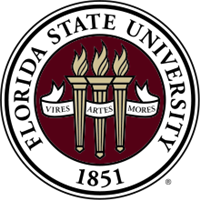- Find Your College
- Scholarships
- Pay for College
-
Articles
- COLLEGES
- Most Recent
- Affordability & Cost
- College Search
- Comparisons
- College Majors & Minors
- Myths
- News & Trends
- Tips, Tools & Advice
- Admissions
- Most Recent
- ACT & SAT
- College Admissions
- College Applications
- Myths
- Online Colleges
- Questions & Answers
- About
Insurance
Select Type of Degree:
Select State:
|
#1

Columbia University in the City of New York
|
|||||||||||
|
#2

Olivet College
|
|||||||||||
|
#3

Butler University
|
|||||||||||
|
#4

Boston University
|
|||||||||||
|
#5

Florida State University
|
|||||||||||
|
#6

Husson University
|
|||||||||||
|
#7

University of Wisconsin-Madison
|
|||||||||||
|
#8

Saint Peter's University
|
|||||||||||
|
#9

University of Akron Main Campus
|
|||||||||||
|
*The estimated net prices above are College Raptor’s estimate. Please contact the college financial aid office for actual net cost figures.
|
|||||||||||
About Insurance
Insurance programs prepare individuals to manage risk in organizational settings and provide insurance and risk-aversion services to businesses, individuals, and other organizations. Includes instruction in casualty insurance and general liability, property insurance, employee benefits, social and health insurance, loss adjustment, underwriting, risk theory, and pension planning.
Those who are interested in Insurance can study up to a Postbaccalaureate certificate. Currently, 1,307 students earn a some level of degree in Insurance around the United States each year. More students graduate with a degree in Insurance in the state of New York than any other state. The average annual income for a graduate with a bachelor's degree in Insurance is $52,300.
Careers
The highest paying career for Insurance majors is Business Teachers, Postsecondary. But, something else to consider is how much demand there is for specific careers. A job that is in high need that a degree in Insurance can prepare you for is Insurance Sales Agents.
Top Paying Careers
These are the highest paying careers for Insurance majors.
Most In-Demand Careers
These are the careers in highest demand for Insurance majors.
Student Demographics




Subscribe to Our Newsletter
Join thousands of students and parents learning about finding the right college, admissions secrets, scholarships, financial aid, and more.

College Raptor, Raptor, InsightFA, FinanceFirst, and “The Right College. The Best Price.” are registered trademarks of College Raptor, Inc.




